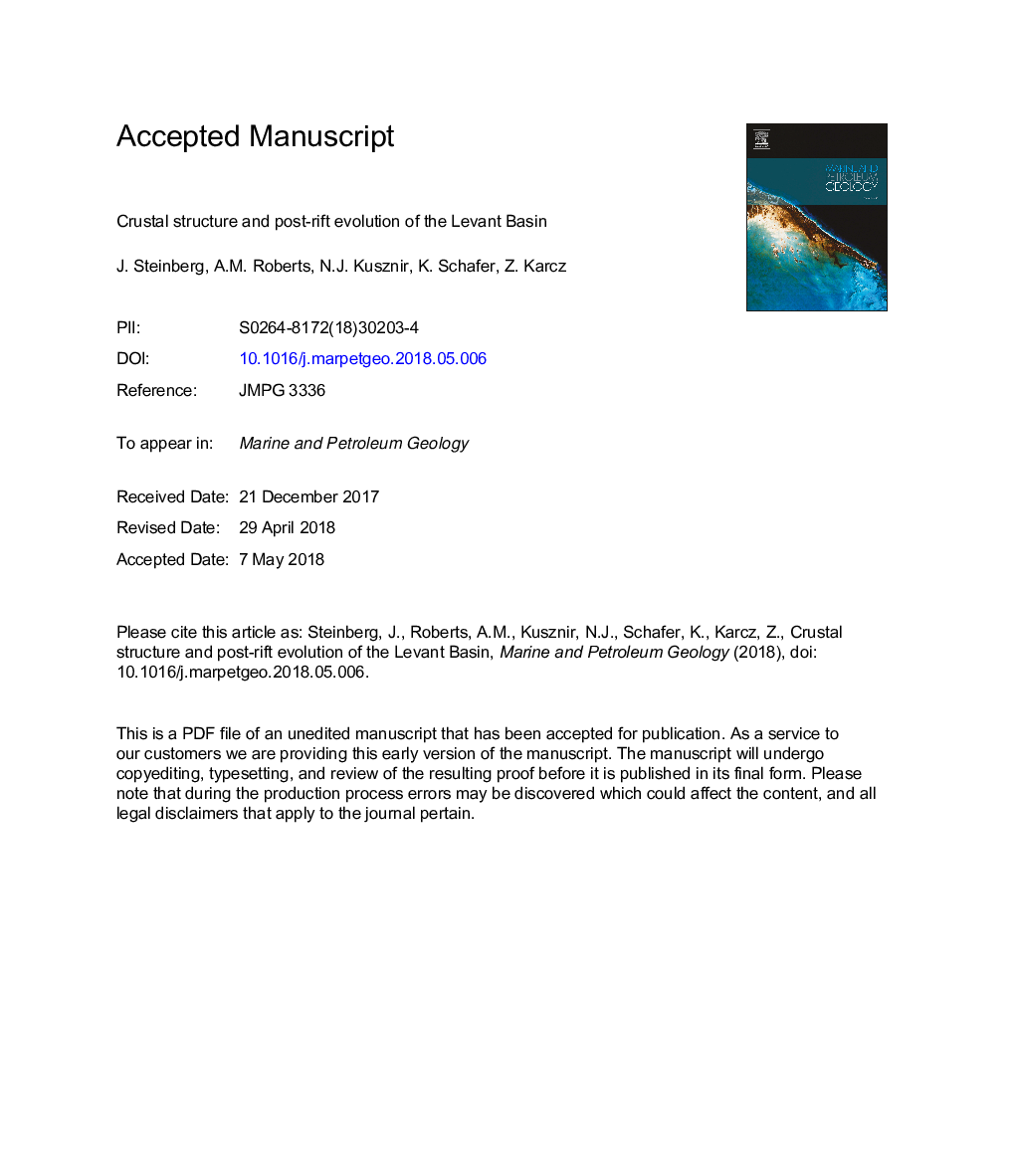| Article ID | Journal | Published Year | Pages | File Type |
|---|---|---|---|---|
| 8909014 | Marine and Petroleum Geology | 2018 | 60 Pages |
Abstract
The integration of these techniques allows us to assess the evolution of the basin and the various sedimentary and tectonic events that have occurred since basin initiation. Although the calculated stretching factors indicate that while the lithosphere underlying the Levant Basin has been very highly stretched and thinned, the stretching did not progress to the formation of new oceanic crust. Predicted palaeobathymetry portrays a thermally-subsiding basin reaching maximum water-depths at the onset of the Cenozoic. This deep basin provided ample amount of accommodation space for the large volumes of terrigenous clastics, sourced from the contemporaneous uplift and exhumation of the basin margins and delivered in large part, at least since the Oligocene, by the continental drainage of the Nile. These sediments have been filling and shallowing the basin ever since. The basin evolution described here is consistent with available geophysical and geological data and has important implications for petroleum-systems modelling within the basin.
Related Topics
Physical Sciences and Engineering
Earth and Planetary Sciences
Economic Geology
Authors
J. Steinberg, A.M. Roberts, N.J. Kusznir, K. Schafer, Z. Karcz,
